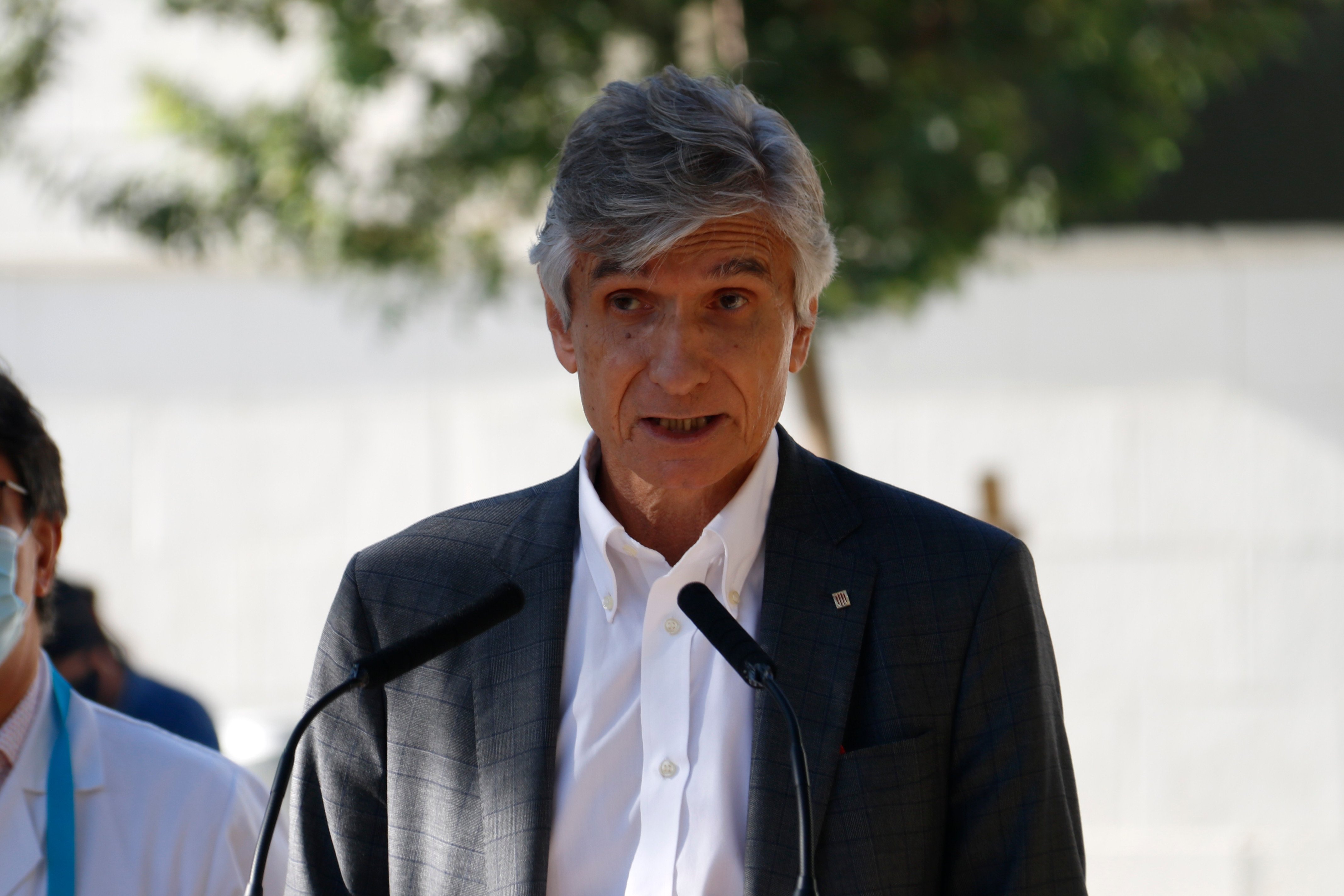"It doesn't have to be compulsory." The Catalan health minister, Josep Maria Argimon, has stated that he does not consider that Covid vaccination should be an obligation and even added that it could be "counterproductive". "Spain is a country that is vaccinating, this obligation is not necessary," he affirmed.
The minister also said that the government does not want it to be mandatory and stressed that, in any case, Catalonia does not have the competence to decide in this area and thus it would be the Spanish government that would have to impose it.
Argimon reiterated that the coronavirus pandemic is also the "pandemic of solidarity". And he asserted that vaccination should be approached from a "community" point of view. He also mentioned in passing that when safety distances cannot be guaranteed, masks should still be worn at all times.
The PIMEC proposal
Argimon's statements were in response to the secretary general of the PIMEC business association, Josep Ginesta, who over the weekend proposed suspending without pay the employment of workers who do not have the Covid certificate. In an interview on RAC1, Ginesta said that if an employee decides not to get vaccinated nor is willing to be tested before entering the workplace, that is, "neither to do their part in the common interest nor in protecting everyone's health" , then "the employment contract should be suspended and the person should stop receiving his salary."
"We are in favour of penalising workers who do not want to be vaccinated or even to present test results," he reiterated.
Covid certificate before restrictions
In Catalonia's current "new normal" context, what will happen if a new wave of the virus arrives? Argimon has also commented this weekend that if the pandemic indicators were to worsen, the government would ask the High Court of Catalonia for permission to use the Covid certificate more widely, as is occurring in countries like France or Italy, before returning to a closure of sectors such as bars and restaurants or the culture and entertainment industry.
The minister, who clarified that he was only speaking hypothetically, made the statement last Saturday on Catalunya Ràdio, adding that the Catalan executive is tentative about its support for this measure because "it is still a restriction on rights and freedoms". Argimon justified that if the measure has been applied to the nightlife sector it is because "it was necessary to reopen a sector that involves a certain risk."
A farewell to masks?
Regarding masks, Argimon stated in the same interview that it is difficult to predict when they will stop being part of our day-to-day, but was in no doubt that the first place where their use would end would be among children in classrooms. The minister predicted that it will happen during this school year and commented that the educationalists have spoken of the difficulties that mask-wearing creates for learning.
Main image: Catalan minister of health, Josep Maria Argimon / ACN

